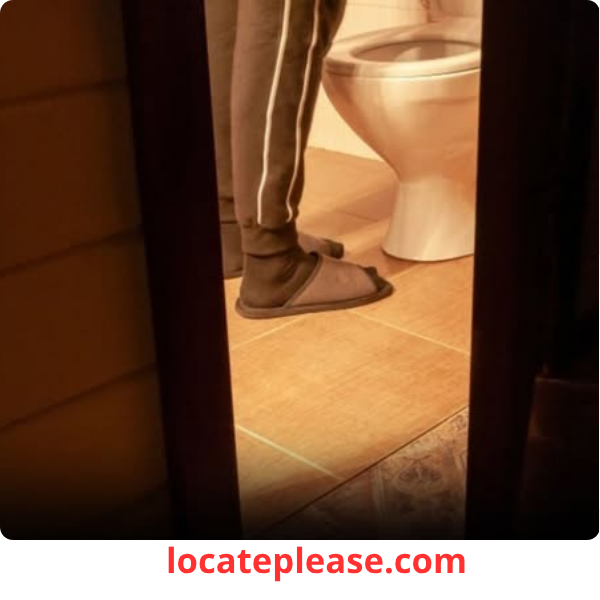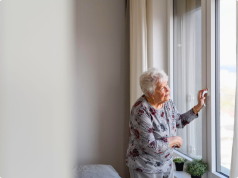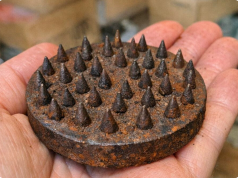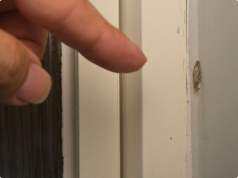Waking up to use the bathroom once in a while is normal.
But if you’re getting up two, three, or even more times a night to pee, you’re not just losing sleep — you might be dealing with a condition called nocturia.
Far more than just a bathroom inconvenience, frequent nighttime urination can disrupt your sleep, drain your energy, and even signal an underlying health issue.
Let’s break down everything you need to know about nocturia — what causes it, when to be concerned, and what you can do about it.
What Is Nocturia?
Nocturia is the medical term for waking up at night specifically to urinate.
While one trip might be normal, waking up two or more times per night is considered clinically significant and can impact your quality of life.
It’s especially common in older adults — over 50% of people over 60 experience it — but it’s not a normal part of aging. It’s a symptom that deserves attention.
❗️Not the same as bedwetting (enuresis):
Nocturia means you wake up because you need to pee.
Enuresis is involuntary urination during sleep.
Why Do We Pee at Night? Common Causes
Your body usually produces less urine at night, allowing for uninterrupted sleep. But in nocturia, this balance is disrupted. Here’s why:
1. Aging & Hormonal Changes
As we age, the body produces less antidiuretic hormone (ADH) — the hormone that tells your kidneys to concentrate urine and reduce output at night.
Result? More urine is made while you’re sleeping.
Additionally, bladder capacity decreases with age due to weakened muscles or overactivity.
2. Excess Fluid Intake — Especially Before Bed
Drinking large amounts of fluids in the evening — particularly:
- Alcohol
- Caffeine (coffee, tea, soda)
- Diuretic beverages (like herbal teas)
…can increase nighttime urine production.
3. Medications
Some medications, especially diuretics (“water pills”) used for high blood pressure or heart conditions, are taken in the evening — leading to increased urination at night.
4. Pregnancy
As the uterus expands, it puts pressure on the bladder.
This is common in the second and third trimesters — and usually resolves after delivery.
5. Medical Conditions
Frequent nighttime urination can be a red flag for several serious health issues:
|
Diabetes (Type 1 & 2)
|
High blood sugar causes excess urine production (polyuria)
|
|
Diabetes Insipidus
|
A rare condition where the body can’t regulate fluid balance
|
|
Urinary Tract Infection (UTI)
|
Irritates the bladder, causing urgency and frequency
|
|
Enlarged Prostate (BPH)
|
Compresses the urethra, leading to incomplete emptying and frequent urges
|
|
Congestive Heart Failure
|
Fluid pools in legs during the day; when lying down, it returns to circulation and gets filtered by kidneys at night
|
|
Chronic Kidney Disease
|
Impaired kidney function affects urine concentration
|
|
Sleep Apnea
|
Low oxygen levels trigger hormone changes that increase nighttime urine
|
6. Sleep Disorders
Conditions like insomnia, restless legs syndrome, or obstructive sleep apnea can fragment sleep, making you more aware of bladder sensations — even if urine volume is normal.
Symptoms of Nocturia
You may have nocturia if you:
- Wake up two or more times per night to urinate
- Feel the urge to go even after emptying your bladder
- Produce large volumes of urine at night (nocturnal polyuria)
- Feel tired, groggy, or unfocused during the day
⚠️ Waking up 5–6 times a night is not normal — it’s a sign something’s wrong.
When to Start Worrying
While occasional nighttime urination is common, seek medical advice if you:
- Wake up frequently for weeks or months
- Notice increased thirst or weight loss (possible diabetes)
- Have pelvic pressure, pain, or burning during urination (possible UTI)
- Experience snoring, gasping, or daytime sleepiness (possible sleep apnea)
- Are an older adult at risk of falls — getting up at night increases the chance of injury
How Is Nocturia Diagnosed?
Your doctor will likely:
- Ask about your urination patterns (how many times, when, volume)
- Review your medications and fluid intake
- Perform a physical exam (especially prostate in men)
- Order tests such as:
|
Urinalysis
|
Check for infection, sugar (diabetes), or concentration
|
|
Urine Culture
|
Confirm UTI
|
|
Blood Tests
|
Check kidney function, blood sugar, and electrolytes
|
|
Post-Void Residual (PVR) Test
|
Ultrasound to see how much urine is left after peeing
|
|
Bladder Diary
|
Track fluid intake and bathroom trips over 24–72 hours
|
Treatment Options: What Works
Treatment depends on the cause — so personalized care is key.
Lifestyle & Behavioral Changes
✅ Limit fluids 2–4 hours before bed — especially alcohol and caffeine
✅ Elevate your legs in the afternoon — helps reduce fluid buildup in legs
✅ Wear compression stockings — prevents fluid from pooling
✅ Take diuretics earlier in the day — so their effect wears off by bedtime
✅ Empty your bladder before sleep — even if you don’t feel the urge
Medications
- Anticholinergics (e.g., oxybutynin) — Reduce bladder overactivity
- Desmopressin — A synthetic form of ADH that reduces nighttime urine
- Alpha-blockers (for men with BPH) — Relax prostate muscles to improve flow
- Adjusting or timing medications — Your doctor may change your diuretic schedule
⚠️ Note: Medications can help, but symptoms often return when stopped.
Treat Underlying Conditions
- Control blood sugar if you have diabetes
- Treat sleep apnea with CPAP
- Manage heart or kidney disease with proper care
Why It Matters: More Than Just Sleep Loss
Nocturia isn’t just about inconvenience. It can:
- Reduce sleep quality → leading to fatigue, brain fog, and mood issues
- Increase fall risk in older adults — especially in dark, unfamiliar spaces
- Lower quality of life — affecting work, relationships, and mental health
Final Thoughts: Don’t Ignore the Nightly Wake-Up Calls
Waking up to pee might seem like a minor annoyance — but when it happens night after night, it’s your body’s way of saying:
“Something’s off.”
Whether it’s your fluid habits, medications, or an underlying condition, nocturia is treatable — but only if you pay attention.
So if you’re tired of losing sleep to bathroom trips, don’t just accept it as “normal.”
Talk to your doctor.
Keep a bladder diary.
And take steps to reclaim your rest.
Because a good night’s sleep shouldn’t come with a midnight pit stop.






